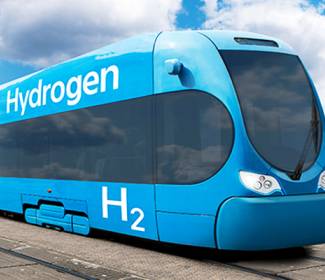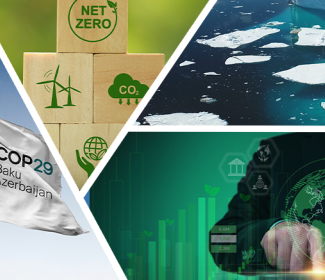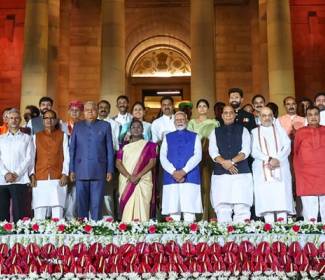India’s energy sector is one of the most diversified in the world, with power generation sources ranging from conventional sources such as coal, oil, natural gas, hydro and nuclear power to non-conventional sources such as wind, solar, and biowaste. India is the third-largest electricity producer worldwide, with an installed power capacity of ~417 GW.
Although India has successfully transformed from an energy deficit nation to an energy surplus one, factors such as burgeoning population, rapid industrialisation and urbanisation are creating challenges for the power sector to meet the rising demands.
Government Policies to Boost Energy Infrastructure
Over the past few years, India’s energy sector has undergone a remarkable transformation, successfully implementing policies aimed at universal access to electricity, improving power generation capacities, and promoting clean energy development. Since the launch of the SAUBHAGYA scheme in 2017, one of the world’s largest electrification schemes, over 2 Cr households in rural areas and all poor households in urban areas in the country have been electrified. The Deen Dayal Upadhyaya Gram Jyoti Yojana (DDUGJY) has been implemented to strengthen electricity distribution infrastructure and has facilitated the electrification of 18374 villages across the country.
As India pioneers a new economic development model, the government is scaling up initiatives for rapid energy transformation to produce affordable, reliable, clean energy. Declared in the COP Summit 2015, India's vision to achieve 175 GW of renewable energy by 2022 was realised even before the set deadline in 2021. Building on this success, India has set a new target to reach 500 GW of renewable energy by 2030 to achieve net-zero carbon emissions by 2070.
With an outlay of INR 18500 Cr, the Government has allocated 48337 MW of domestic Solar PV module manufacturing capacity under the PLI scheme for High-Efficiency Solar PV Modules. This is a major step towards making India Aatmanirbhar in the solar manufacturing sector. It would help reduce the impact of global supply chain shocks and import dependence for producing high-tech Solar PV Modules.
Moreover, the government is emphasising the adoption of battery energy storage systems (BESS) to accelerate the replacement of fossil fuel sources with clean energy ones. The Battery Energy Storage Systems (BESS) scheme has been designed to develop 4000 MWh of BESS projects by 2030-31, providing 40% of capital costs as budgetary support in the form of Viability Gap Funding (VGF). With the VGF support, stored renewable energy sources would become a feasible option for handling peak power demands.
Role of FDI in India’s Energy Sector
While energy consumption in India currently accounts for one-third of the global average per person, the power demand is projected to grow exorbitantly. Many financially ailing utility companies require aid to overcome challenges like rising commodity prices and tight markets to meet growing needs at affordable prices.
India is well-positioned to become a global leader in renewable batteries and green hydrogen, owing to the country's geographical advantage for producing solar and wind energy. Although clean energy transformation is well underway, India would require global investment flows in the renewable energy sector besides strong policy support to achieve its net-zero emission targets by 2070.
As per an estimation from the International Energy Agency, India would require an investment of $160 Bn per year till 2030, three times today’s investment level, to meet 50% of its energy demands from renewable energy sources by 2030.
The WAIPA World Investment Conference (WIC) would provide a significant opportunity for business and global leaders to come together and discuss the strategies to achieve carbon net emission goals with significant clean energy transformation initiatives. The forum would provide an opportunity to create investment opportunities in India's fast-growing renewable energy sector. FDI in the energy sector would significantly advance renewable energy technologies and battery storage energy systems to achieve sustainable growth.
India’s climate goal ambitions are transformational not just for India but for the entire planet.
Register to learn more on the investible projects available in ~10 countries at the presentation on “Investments in Energy/Infrastructure" sector at #WIC27: https://waipa.org/wic-register
- https://powermin.gov.in/en/content/power-sector-glance-all-india
- https://pib.gov.in/PressReleaseIframePage.aspx?PRID=1945212
- https://pib.gov.in/PressReleaseIframePage.aspx?PRID=1897040
- https://pib.gov.in/PressReleaseIframePage.aspx?PRID=1944075
- https://pib.gov.in/PressReleaseIframePage.aspx?PRID=1911380
- https://timesofindia.indiatimes.com/blogs/voices/indias-energy-transition-challenges-and-opportunities-for-a-sustainable-future/
- https://pib.gov.in/PressReleaseIframePage.aspx?PRID=1955113#:~:text=Designed%20to%20harness%20the%20potential,a%20budgetary%20support%20of%20Rs.
- https://www.weforum.org/agenda/2023/07/india-energy-transition-plus-other-top-energy-stories-this-week/#:~:text=The%20financing%20will%20help%20India,energy%20capacity%20commitment%20by%202030.
- https://www.iea.org/commentaries/india-s-clean-energy-transition-is-rapidly-underway-benefiting-the-entire-world






